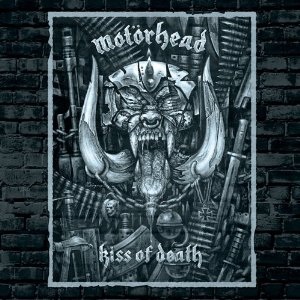
80%A genius producer teams up with a rapper-turned-singer-who-can't-really-sing for an album that's a clear throwback to the 70's. No, it's not Gnars Barkley, it's Dudley Perkins's new album, "
Expressions (2012 A.U.)". Some may remember Dudley from when he got his start as MC Declaime on the Liks' breakthrough "
Coast II Coast" album. Now under his government name and signed to indie rap's premier label, Stones Throw Records, he takes a stab at singing, with decidely interesting results. And who's the genius producer? Well, it's Stones Throw's in-house maestro, Madlib.
So how's his singing? Technically, pretty terrible. It's pretty obvious he has had no formal training of any sort. On the other hand, he's got
something in there, maybe it's just loads of charisma, maybe it's his carefree attitude, maybe it's best described by words we cannot define but we know them when we hear them: funk and soul. You hear it in Eddie Hazel's guitar and Maceo Parker's horns and Bootsy Collins's bass, and you hear traces of it here. Actually, maybe Bootsy's singing is the best comparison, it's not so great in a lot of contexts, but in his Rubber String Band, it was incredibly appealing. It makes even Perkins himself ask, "Dudley, how'd you get so funky?", on the album's first track, "Funky Dudley".
As far as Madlib, he's only here to cement his reputation. Madlib's name might not be on the cover, but truly, this is
his album. From the magnificently funky licks of "Funky Dudley" or the creeping keys and seductive bassline of "Come Here my Dear", it's all pretty incredible. Dudley wouldn't sound nearly as good over anyone else's production.
The lyrics are either sung or rapped or somewhere in between. Dudley manages to be appealing if not techinically incredible at any point (his rapping technique is by no means bad, but he's not Rakim). The lyrics revolve around different aspects of life - sadness, love, god, weed, so on. The truth is that Dudley's not an amazing lyrcist. Competent? By far. Amazing? No. However, he has a knack for honesty which works well for his delivery.
And as previously mentioned, weed plays a big part here. There's the sound - even the skit, "Domestic Interlude" has speakers which the people seemed to have intentionally lowered their pitch and appear incredibly high - and then there's direct references just in case you didn't get the clues.
Madlib has a knack for unpredictability. His beats stutter and samples come through at unexpected times. However, it doesn't sound random, just carefree. It really only adds to the whole feel of the CD. It's like he's driving a car and you're in the passenger seat: first he goes slowly, speeds up in a straight line, and just as you see your destination, he takes a sharp right turn and suddenly you're sent out flying, and just as soon as you feel like you're going to hit the ground, he's there again to pick you up, and you're at your destination. Sorry for the odd metaphor, but what I'm trying to say is this: he sets up an expectation in your mind with what he's going to do, then he does something completely different, but then somehow he always ends up where you thought he would.
While Perkins's previous album came off as a mess, "
Expressions" has enough focus and organization to seem unified enough. Of course, it's by no means tight - it's way loose, actually, but there is at least focus throughout.
Although teaming up with a really capable singer with really great lyrics would have been awesome, part of the charm here is Dudley's everyman voice and his carefree honesty. Some songs, however, really suffer from a lack of a really well-sung hook, an example of this is "Inside". Then there's the "Domestic Interlude" and "The Last Stand", which have music but are not really songs, and although they're not entirely without merit, they do seem kind of pointless.
At the end, the album begins to lose focus a bit, but thankfully "Dear God" is a really strong closer, funny but at the same time touching. There's even a conversation with God about weed thrown in there.
"
Expressions (2012 A.U.)" works best as a whole, and it probably sounds best while under the influence of marry-wanna. Madlib's musical recycling, cut-and-paste genius cannot be overstated here - he's really cemented his position as hip-hop's most creative, consistent producer. Dudley complements the music well, and manages to overcome technical shortcomings to sound appealing and especially entertaining. It's really just a fun, well-made, funky ride.
- Luis













